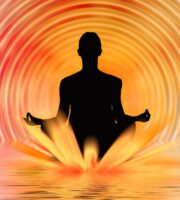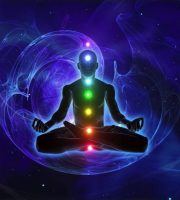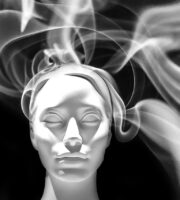We concluded our recent discussion of Buddhist mindfulness by exposing a fatal flaw in the approach to meditation that seems to have become de rigueur in certain circles of the self-improvement industry. Specifically, a movement that purports to be all about enhancing awareness has failed to take account of one of the fundamental paradigms of New Age thought – the verifiable fact that our thoughts, beliefs, and emotions impinge directly on the quality and details of our physical reality. Any notion of “right mindfulness” that does not enhance our awareness of this constant creative process is leaving us in the dark instead of enlightening and empowering us. We need an approach that focuses our attention on the fascinating interplay between inner and outer reality – an approach that encourages us to create the best personal realities we can.
In this post, we shall employ an analogy from political science to flesh out one way of maintaining the kind of mindfulness dictated by a recognition of our personal, creative power. Although this analogy may prove inaccessible to people with little background in the social sciences, the language of politics is steeped in concepts that deal with the distribution of power and with hierarchies of authority. The analogy is imperfect (and there is little to be gained from attempting to make it “fit” more closely) but I hope it will help you to think about how effectively you are using your own power at any given time, and thereby remind you just how much power you actually have.
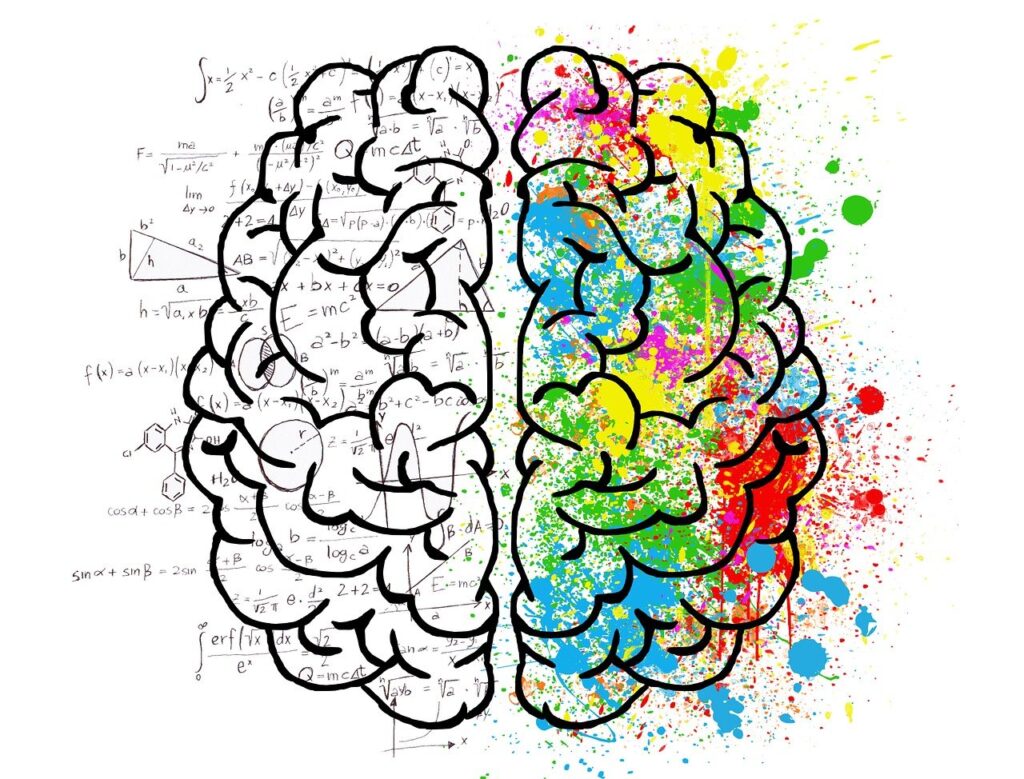
The Supreme Law of the… Mind
As Constitutional scholars know all too well, Article VI, Clause 2 of the United States Constitution declares that the federal Constitution is the supreme law of the land, trumping all other sources of law, such as state or federal statutes, that do not comport with its dictates. In the case of personal reality, there is also a supreme law; namely, that we create our own reality with our thoughts, feelings, and emotions. (Yes, physical actions are relevant, but they are subsidiary. The actions that really count are the ones we take with our mind, for they determine all others.) If this concept is alien to you, or strikes you as implausible, then you might as well stop reading here. There are other things you need to read first. (Our review of The Secret contains a couple of recommendations – not including the subject of that review!)
The U.S. Constitution, among other things, established three branches of government – legislative, executive, and judicial. Explained in the simplest terms, the legislative branch (the two houses of Congress) makes federal laws; the executive branch (the president and his administration) applies and enforces those laws; and the judiciary (the federal court system, headed by the Supreme Court) interprets the laws in cases of confusion and ensures that the laws are consistent with the Constitution itself – the supreme law of the land. This latter function, known as judicial review, is quite controversial in politics, because if the Court does not interpret the Constitution correctly it can be (and often is) accused of imposing its own, subjective opinions on the political branches of the government, which are – unlike the Court – elected by the people. For our purposes here, we do not need to concern ourselves with this controversy, but the idea of a high court reminding the rest of the system to adhere to first principles is absolutely crucial.
In the U.S. system, there is a separation of powers, in which each branch is given exclusive authority over certain matters. In other political systems, such as the British parliamentary model, there is a fusion of powers, in which the separation between the branches breaks down. The British Cabinet, dominated by the Prime Minister, is drawn from the majority party in the House of Commons; while it is an executive body, it essentially controls activity in the legislature and can therefore make laws as well as implement them. Similarly, the highest court in the British system is drawn from the House of Lords, the upper chamber of the legislature (Parliament), further eroding the separation of powers. It is worth noting this distinction, for in the human constitution, we have the ultimate fusion of powers.
Getting to Know Your Inner Government
In French politics, it is not unusual for the Prime Minister to also be the Mayor of Paris, or hold some other significant post. The French refer to this multi-tasking as le cumul des mandats – the accumulation of offices. In our personal politics, we have to do it all. We have an internal legislature, an executive “administration,” and a Supreme Court to make sure the other two branches behave themselves. How, exactly, can we identify these inner roles – these personal branches of government?
In the human constitution, the legislative function refers to the thinking of thoughts and the feeling of emotions; it is the mental enactment of our beliefs. Sometimes, as with real legislatures swayed by fleeting popular passions or the malign influence of lobbyists, the legislature passes poor bills. When you think negative, destructive thoughts that arouse within you damaging emotions, your inner legislature is doing a bad job for you. At other times, the inner legislature thinks beneficial thoughts that tend to create positive outcomes. As long as you are awake, your legislature is always in session, and it is a very busy institution. It is most effective – for better or worse – when it consistently churns out bills with similar objectives; if it’s output is mixed, the conflicting bills will tend to neutralize one another and result in muddled stasis.
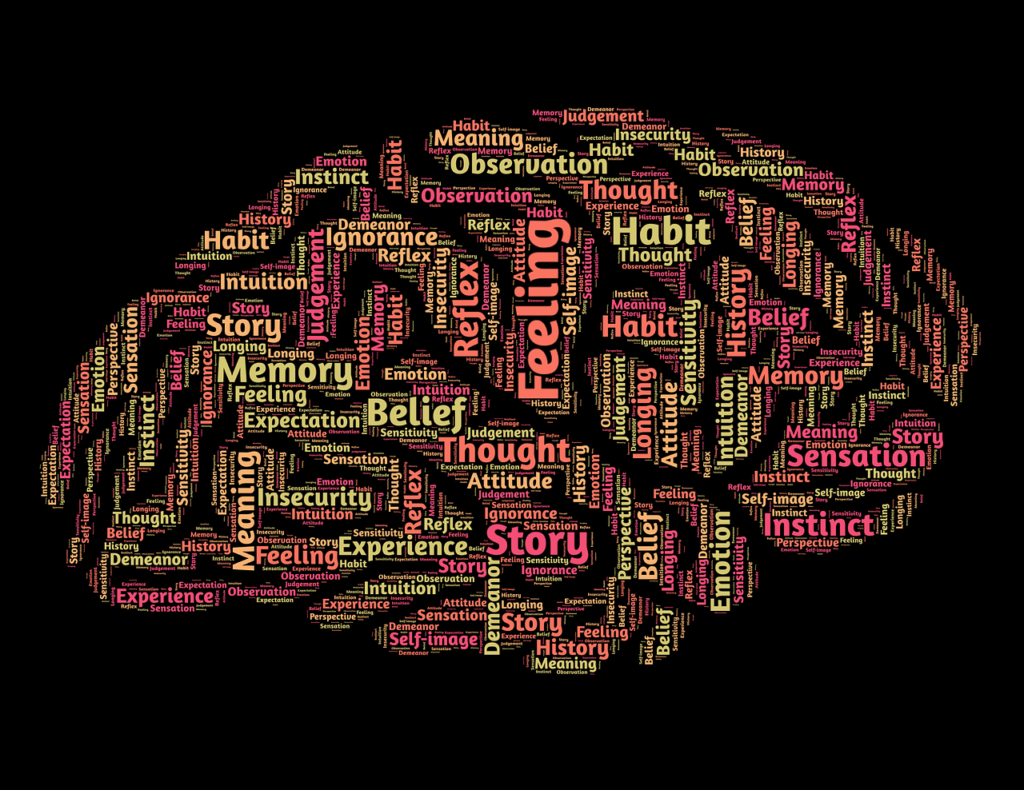
The executive function involves both the mental and physical mechanisms by which we carry out the will of the legislature. If, for example, the legislature passes a bill (i.e., adopts a belief) acting on questionable information, holding that your friend is a back-stabber who is out to get you, your executive will ensure that you start to behave differently toward your friend. You will look at her differently, talk to her in a different tone of voice, say things that you would otherwise not say, and perform actions towards her that reflect your belief that she is against you. All of this is largely automatic. Unlike the administration of President G.W. Bush, which used “signing statements” to essentially tell Congress that it had no intention of implementing parts of statutes with which it disagreed (a clearly unconstitutional practice that effectively created an extra-constitutional line-item veto), your executive is a dutiful servant of the legislature, as it should be. We don’t need to worry too much about the executive; there is no “imperial presidency” in our human constitutional affairs.
In James Madison’s original understanding of the U.S. Constitution, the Congress was by far the most powerful branch, and potentially the most dangerous. While that has changed in American politics, in our personal politics the inner legislature is unquestionably the dominant force. The executive cannot veto its bills: though it may resist implementation of certain acts that deviate from past practice (habits), it is ultimately powerless against a determined legislature. Strongly held beliefs and deeply felt emotions are unstoppable; they will change your life. It is vital, therefore, to choose those beliefs and emotions wisely, and that brings us to consideration of the judicial function.
Mindfulness Wears Judicial Robes
In an ideal world, the inner legislature would only pass good bills that advance our personal interests. Positive, joyful beliefs and emotions would flow freely and consistently, causing the executive to bring about the conditions we desire. Unfortunately, in a sad parallel to real politics, the inner legislature goes off on bizarre tangents, can’t make its mind up what it really means, or gets seduced by evil factions. It needs guidance, and it doesn’t get enough from within its own ranks. Some part of us needs to rise above the partisan fray and impose a sense of purpose consistent with the supreme law of the mind. That task falls to our inner judiciary – our personal Supreme Court. Thus, the judicial function is one of reminding the legislature – the busy, thinking, feeling self – that its actions are much more than mere objects of consciousness, and that because of this, the legislature had better use its considerable power responsibly. In the human constitution, the judicial function is the pinnacle of awareness.
In an interesting departure from the political practices with which we are most familiar in the U.S., our inner legislature is free to ask our Supreme Court for guidance at any time – to use it as an advisory council. In other words, when you catch yourself starting to think or feel in a particular way, you can ask yourself whether such mental actions are likely to produce good results, bearing in mind that thoughts and emotions have real power over your life. Upon further reflection, the answer may well be that such thoughts had better be avoided at all costs, or that you have seen poor results from similar thoughts in the past. You can think of this as reading prior case law, or looking for precedents. The inner judiciary has volumes upon volumes of cases in its history – a huge treasure trove of potential guidance, if only we have the wisdom and patience to avail ourselves of it. Note, however, that the cases only date back to that point in time when you were aware of the connection between your inner and outer realities. If your memory only includes what happened “out there” but contains nothing about what you had been doing “in here,” then you have no useful precedents upon which to draw.
Most people live their entire lives in ignorance of the supreme law of the mind. They do not understand the true power of their own thoughts and emotions. Consequently, they rarely harness that power effectively (if they do, it is entirely by accident), and frequently find themselves stroking against the tide, never able to bring about the conditions they desire despite their best efforts. Destructive beliefs and emotions enacted by their inner legislature sabotage their progress. But when we live mindfully – when we become aware of both the existence and the workings of the supreme law of the mind – we are finally able to perceive the source of the problem. To our wise inner Court, the actions of the inner legislature that are bringing us down become obvious.
It is often said in mindfulness circles that freedom comes from recognizing that we have a choice over the contents of our minds. Ironically, many of these “authorities” have no idea just how true that really is.

